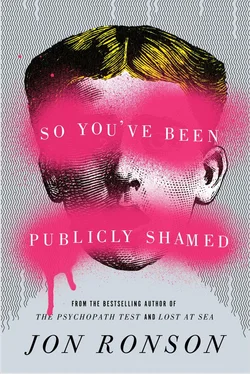He gave an example — an Oregon lawyer, Brandon Mayfield, who was falsely accused by the FBI of committing the Madrid bombings of March 2004. A fingerprint had been lifted from a bag of detonators found at the scene. After the FBI fed it into their database, Mayfield’s name came back as a match.
The detectives soon discovered that Mayfield was a Muslim, married to an Egyptian immigrant, and had represented a convicted terrorist in a child custody dispute.
The FBI held Mayfield for two weeks before acknowledging that the fingerprint match was “not even close.” In fact, the agency had fallen victim to something known as confirmation bias. It was taking seriously only those pieces of information that confirmed the preexisting belief that Mayfield was the culprit. It was unconsciously filtering out evidence that pointed to his innocence. As a result of the scandal, the FBI implemented rigorous new reforms to root out errors. It would be great — Jonah ended his speech by saying — if something like that could happen with him.
If I’m lucky enough to write again, I won’t write a thing that isn’t fact-checked and fully footnoted. Because here is what I’ve learned: unless I’m willing to continually grapple with my failings — until I’m forced to fix my first draft, and deal with criticism of the second, and submit the final for a good, independent scrubbing — I won’t create anything worth keeping around.
This was the happy ending Jonah believed Americans wanted. As I sat on the plane, I realized I had no idea if his speech was good or bad, or if it would go down poorly or well. The FBI stuff was overly tangential and evasive. Jonah wasn’t really like the FBI. As it happens, I’ve done my own research on the perils of confirmation bias and agree with Jonah that it is a powerful bias indeed, often found at the heart of miscarriages of justice. In fact, ever since I first learned about confirmation bias, I’ve been seeing it everywhere. Everywhere. But even a confirmation bias aficionado like me could see that Jonah hadn’t succumbed to it. Deliberately padding out Bob Dylan quotes to fit a thesis about the creative process wasn’t confirmation bias.
So I found the FBI digression a bit slippery, but there was still a good chance his speech could be like the end of Neil Diamond’s The Jazz Singer, where the disgraced synagogue cantor wins over the congregation by reminding them how beautiful his singing voice is. I e-mailed Jonah to say I thought his speech was fantastic. He sent me an appreciative reply. I asked him if I could come with him to Miami. He said no.
• • •
I am the author of a book on creativity that… contained several fabricated Bob Dylan quotes… I lied to a journalist named Michael Moynihan.
Jonah was at the Knight Foundation lectern, standing very still. I was watching at home on my computer. In his old lucrative public-speaking days, his voice would rise and fall to emphasize this word or that, but now he sounded flat, like a scared child in front of the class. This was the most important speech of his life. He was begging for a second chance. If things weren’t stressful enough for him, the Knight Foundation had decided to erect a giant screen behind his head that displayed a live Twitter feed. Anyone watching from home could tweet their ongoing opinion of Jonah’s request for forgiveness using the hashtag #infoneeds and their comment would automatically appear, in real time and in gigantic letters, right next to Jonah’s face. A second screen was positioned within his sightline.
I saw Jonah’s eyes flicker to it.
Wow. Jonah Lehrer talk dives directly into a listing of failures, errors and mea culpa.
And that, people, is how you apologize.
During the preceding seven months, Jonah had been disgraced and ridiculed and cast out. He had shuffled along the canyons of Los Angeles in a never-ending sweat of guilt and shame, a constant clenched pain. And now, suddenly, there was light. I felt as if I were witnessing a kind of miracle. Just like with my spambot men, we knew when to shame and when to stop. It was as if we instinctively understood that Jonah’s punishment had reached an appropriate peak and now it was time to listen to what he had to say.
And then Jonah moved on to the FBI analogy.
• • •
I’d like to tell you a story that has given me a little hope. It’s a story about a mistake and how it was fixed. It’s a story that I was working on at the time my career fell apart. The story is about forensic science.
It quickly became extremely clear to Jonah, and to me watching at home, that the audience had no interest in his opinions on forensic science. Perhaps they would have had at some point in his career. But not anymore.
Jonah Lehrer boring people into forgiving him for his plagiarism.
I am not feeling terribly convinced by the deadpan mea culpa droning on by @JonahLehrer.
I can’t handle watching the @JonahLehrer apology. He is boring and unconvincing. Time for something else.
Jonah carried on. He talked of how, a month before he resigned from his job, he interviewed the behavioral economist Dan Ariely on the subject of how “the human mind is a confabulation machine.”
“The human mind is a confabulation machine.” Now *that’s* passing the buck.
Using shoddy Pop-psych to explain inability to even write shoddy Pop-psych from scratch.
Jonah Lehrer is a friggin’ sociopath.
Trapped at the lectern, Jonah had twenty minutes of his speech to go, followed by the Q&A.
I agreed with the tweeter who wrote that Jonah was passing the buck when he said that the human mind was “a confabulation machine.” But by mid-apology, it seemed irrelevant whether the criticisms had legitimacy. They were cascading into his sightline in a torrent. Jonah was being told in the most visceral, instantaneous way that there was no forgiveness for him, no possibility of reentry.
The only way @JonahLehrer can redeem himself from his failures is by doing completely different work. He is tainted as a writer forever.
I have zero inclination to forgive or read his future work.
Rantings of a Delusional, Unrepentant Narcissist.
Jonah Lehrer’s speech should be titled “Recognizing self-deluded assholes and how to avoid them in the future.”
Still, he was forced to continue. He had no choice. He had to reach the end. He flatly intoned that he hoped that one day, “when I tell my young daughter the same story I’ve just told you, I will be a better person because of it. More humble.”
Wait, Jonah Lehrer is speaking at a journalism conference? Did they run out of people who aren’t frauds with interesting stuff to say?
Jonah Lehrer putting on a great demonstration of the emptiness of pop behavior-psych: a moral defective tries to blame cognitive failure.
He has not proven that he is capable of feeling shame.
The speech ended with a polite round of applause from the people in the same room as he was.
Amid the tidal wave of abuse, there had been some calls for humanity, a few tweeters noting the terrible strangeness of what was unfolding.
Ugh, Jonah Lehrer is apologizing next to a live Twitter feed of people mocking him. It’s basically a 21st century town square flogging.
Jonah Lehrer is a real person. Twitter is making me so uncomfortable right now.
Jonah Lehrer’s crimes are significant, but apologizing in front of a giant-screen Twitter feed seems cruel and unusual punishment.
But all that was wiped away when someone tweeted: Did Lehrer get paid to be there today?
Of course he didn’t, I thought.
And then Knight answered that question.
Jonah Lehrer was paid $20K to speak about plagiarism at Knight lunch.
Wish I could get paid $20,000 to say that I’m a lying dirtbag.
Читать дальше












